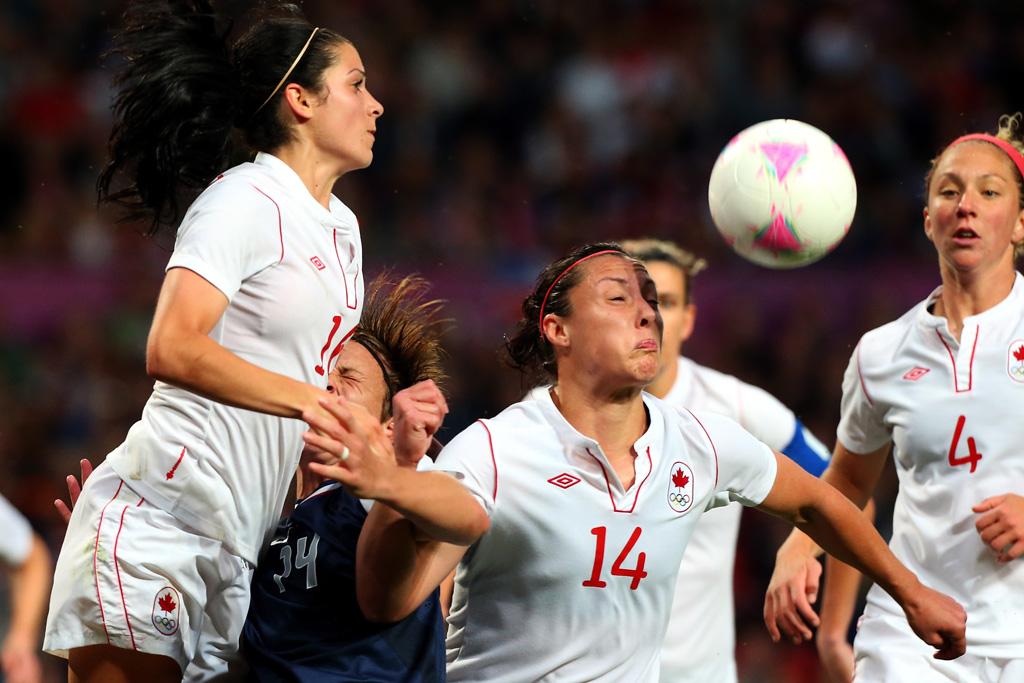National Women’s Soccer League opens ahead of World Cup
Melissa Tancredi of Canada heads the ball while Jonelie Filigno looks on during the women’s soccer semifinal against the USA at the London 2012 Olympic Games at Old Trafford on August 6, 2012 in Manchester, England.
The National Women’s Soccer League debuted this weekend hoping to avoid the failures of two previous American pro leagues and fortify domestic players with Canada hosting the women’s World Cup in 2015.
This time, the NWSL is buoyed by financial and tactical help from the US, Canadian and Mexican soccer associations.
The North American national teams are sending their top players to join the league. The associations are also paying their salaries, which range in the league from $6,000 to about $30,000 annually.
“US Soccer, the Mexican federation and the Canadian federation have all stepped in to fund their players, and I think that that is going to make the biggest difference to cut the biggest overhead, which is the players’ salaries,” American forward Abby Wambach told The Guardian.
“Hopefully the federations will do it until it is necessary.”
She’s hopeful because of the short-lived existence of the WUSA and WPS, two women’s leagues that folded in the past 15 years; they played just three seasons each.
The strategy this time is modest, with just eight teams and 22 games over 5 ½ months.
“As far as goals, we want to create a sustainable league and put down roots,” NWSL executive director Cheryl Bailey told ESPN.
“We have a proven platform with players who can compete on the highest level. We want to grow this game, and we’ve seen growth from all three federations and in the leagues before us.”
All games are available for live-streaming online.
The founding clubs are the Boston Breakers, Chicago Red Stars, FC Kansas City, Portland Thorns FC, Sky Blue FC (New York/New Jersey), Seattle Reign FC, the Washington Spirit and the Western New York Flash.
Seattle, Portland and Kansas City are all new franchises while the others played in Women’s Professional Soccer.
Initial fan reaction appears mixed.
Portland sold 7,000 season tickets before the season began and is owned by the Major League Soccer’s Portland Timbers.
Other teams have already downgraded their stadiums to smaller parks.
So is this going to work?
“I get asked that question a lot: Is this the last chance for professional women’s soccer?” Breakers general manager Lee Billiard told the Boston Globe. “I always give the same answer. It’s going to work.”
Every day, reporters and producers at The World are hard at work bringing you human-centered news from across the globe. But we can’t do it without you. We need your support to ensure we can continue this work for another year.
Make a gift today, and you’ll help us unlock a matching gift of $67,000!
